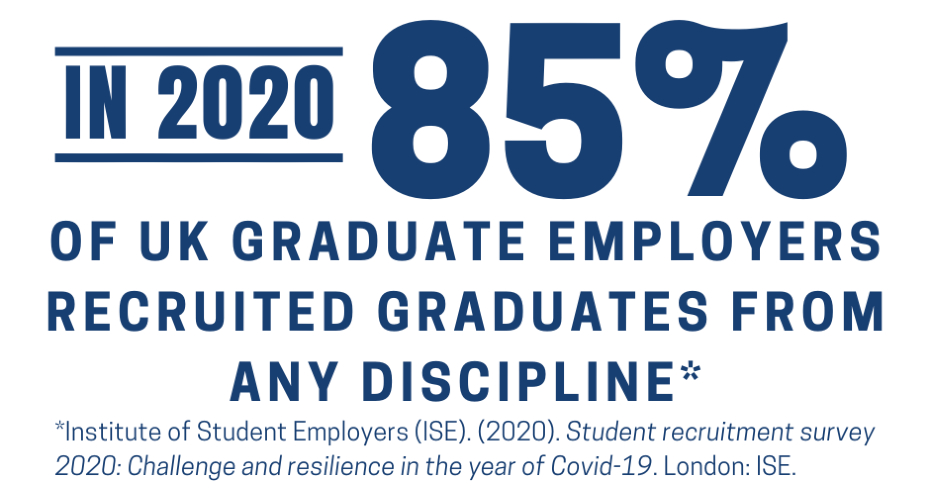
Giulia Luerti, BSc Marine Vertebrate Ecology and Conservation (2022)
'Networking and contacting people whose research you are interested in is always very useful.'
Marine Bioacoustics Researcher, MORIGENOS: Slovenian Marine Mammal Society

Lorraine Aldridge, MSc Marine Vertebrate Ecology and Conservation (2022)
'Being proactive and determined has definitely helped me find amazing opportunities so far.'
Ascension Island Government (AIG) Conservation and Fisheries Directorate.

What can I do with a degree in Ecology and Conservation?
The below offers a selection of the destinations University of Exeter graduates from Ecology and Conservation have gone on to. The information below is not exhaustive, however it does highlight the range of job and further study options available to you after your studies.
If you would like to learn more about any of the jobs listed below you may wish to browse the job profiles on the Prospects website.
Careers with a degree in Ecology and Conservation
Recent Exeter Ecology and Conservation graduates have entered a wide range of careers. Some recent examples include:*
- Animal care occupations including wildlife and zookeeper
- Biological scientists
- Business and related associate professionals
- Conservation professionals
- Ecologist
- GIS Analysts/ Researchers
- Information technology trainers
- Laboratory technicians
- Marine science Officer
- Marketing associate professionals
- Natural and social science professionals
- Photographers, audio-visual and broadcasting equipment operators
- Public relations / communications / partnerships and engagement professionals
- Ranger
- Research Associate
- Sports coaches, instructors and officials
- Sustainability professionals
- Teaching professionals
Remember…
Many employers accept applications from graduates with any degree subject, so don't restrict your thinking to the jobs listed above.
Other resources:
- Employment sector pages
- Prospects to find out more about job profiles
- British Ecological Society
- Marine Biology Association
- Royal Society of Biology
- The Association for the Study of Animal Behaviour (ASAB)
- Zoological Society of London
- Graduate Outcomes Data to do a deep dive into the data on what Ecology and Conservation graduates do after their degree.
- LinkedIn Exeter alumni tool (you will need to be logged in to LinkedIn to access this functionality).
- Alumni Profiles database to explore what Ecology and Conservation graduates choose to do after their degree.
* Data taken from aggregating the responses from full-time, first degree, UK domiciled students who completed 2017/18 up to and including the 2021/22 Graduate Outcomes surveys .
Employers of Exeter alumni with a degree in Ecology and Conservation
Recent Exeter Ecology and Conservation graduates have entered a wide range of careers. Some recent examples include:*
- AK Wildlife Cruises
- Cornwall Council
- Costa Rica Animal Rescue Centre
- Cytiva
- Darwin Ecology
- Ecology Partnership
- Ecology Solutions
- Jones and Sons Environmental Sciences
- Natural England / Research Development UK
- NHS
- Norwegian Institute for Nature Research
- Parkdean Resorts
- RSPB
- University of Exeter
- Wild Futures' Monkey Sanctuary
Other resources:
- LinkedIn Exeter alumni tool (you will need to be logged in to LinkedIn to access this functionality)
* Data taken from aggregating the responses from full-time, first degree, UK domiciled students who completed 2017/18 up to and including the 2021/22 Graduate Outcomes surveys.
Skills
An Exeter Ecology and Conservation degree will arm you with some great employability skills including:
- Communicating effectively in an appropriate style and apply sustained written and oral arguments coherently and persuasively.
- Analysis and critical examination of diverse forms of verbal and text-based communication.
- Gathering, sifting, interpreting and organising substantial quantities of diverse information in structured ways.
- Exercising independent thought and judgement in handling information and arguments in a critical and self-reflective manner.
- Comprehending and developing intricate concepts in an open-ended way that involves an understanding of aims and consequences.
- Working with others through the presentation of ideas and information and the collective negotiation of solutions.
Further Study
Around 27% of Ecology and Conservation graduates go on to pursue further study within 15 months of completing their undergraduate degree. Some recent progression routes include:
- MSc Conservation and Biodiversity
- MSc Marine Vertebrate Ecology and Conservation
- MSc by Research in Biological Sciences
- MSc Marine Environmental Management
- MSc Conservation and Biodiversity
- MSc Marine Vertebrate Ecology and Conservation
- MSc by Research in Biological Sciences
- MSc Conservation Science and Policy
- MPH Biological Sciences
- MSc Evolutionary and Behavioural Ecology
- MSc Food Security and Sustainable Agriculture
- MSc Global Sustainability Solutions
- MSc in Evolutionary and Behavioural Ecology
- MSc Marine Environmental Management
Some went on to study other degrees including:
- MSc Science Communication
- PGCE Secondary Science
- PhD Computer Science
Useful resources:
- Find a Masters
- Masters Compare
- Masters Portal
- Prospects
- University of Exeter PG Study
- LinkedIn Exeter alumni tool (you will need to be logged in to LinkedIn to access this functionality)
* Data taken from aggregating the responses from full-time, first degree, UK domiciled students who completed 2017/18 up to and including the 2021/22 Graduate Outcomes surveys.
**Individual course names were taken from the University of Exeter's Career Destination survey (2018/19, 2019/20, 2020/21 and 2021/22) as this information is not collected within the Graduate Outcomes survey.
